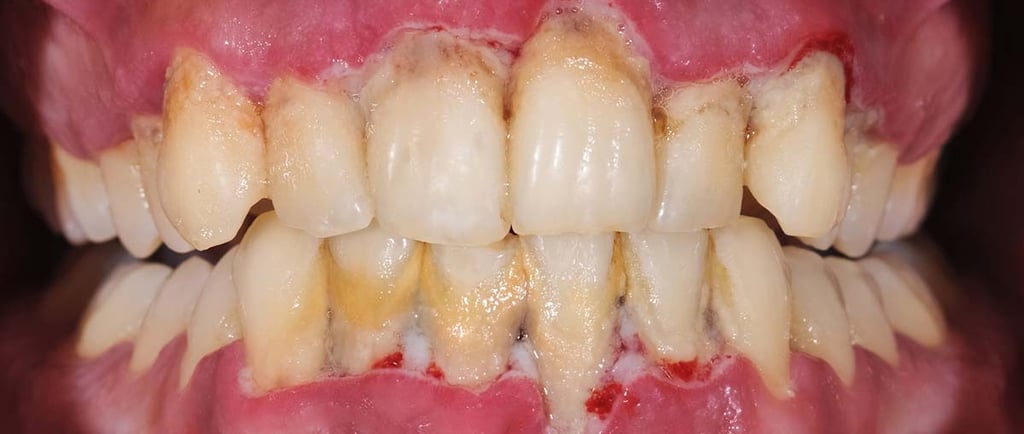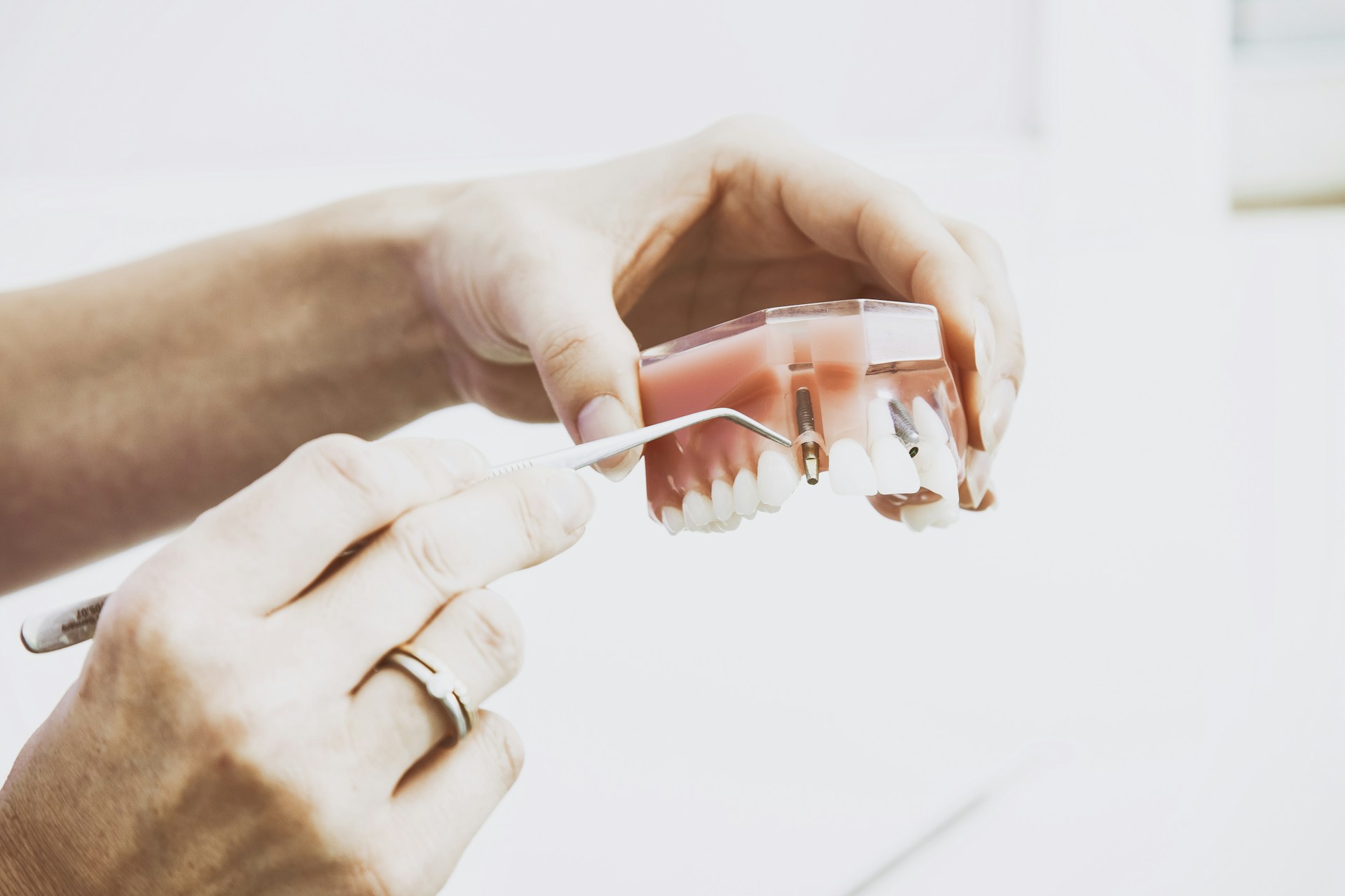Understanding Periodontal Disease: Causes, Symptoms, and Dental Care
Learn about the serious infection of periodontal disease and its consequences if not treated. Discover the causes, symptoms, and the importance of seeking professional dental care to manage this pr...
4/1/20242 நிமிடங்கள் வாசிக்கவும்


Understanding Periodontal Disease
Periodontal disease, also known as gum disease, is a common oral health condition that affects the gums and supporting structures of the teeth.
It is a chronic inflammatory condition that, if left untreated, can lead to tooth loss and other serious health complications.
Causes of Periodontal Disease
Periodontal disease is primarily caused by the buildup of plaque, a sticky film of bacteria that forms on the teeth.
When plaque is not regularly removed through proper oral hygiene practices such as brushing and flossing, it can harden into a substance called tartar or calculus.
Tartar is more difficult to remove and provides an ideal environment for bacteria to thrive, leading to inflammation and infection of the gums.
The bacteria in plaque and tartar release toxins that irritate the gum tissue, causing it to become red, swollen, and prone to bleeding.
While plaque buildup is the primary cause of periodontal disease, there are several other factors that can contribute to its development:
Poor Oral Hygiene
Inadequate brushing and flossing can allow plaque to accumulate and harden into tartar, increasing the risk of gum disease.
Regular and thorough oral hygiene practices are essential for preventing periodontal disease.
Smoking and Tobacco Use
Smoking and tobacco use are significant risk factors for periodontal disease.
They weaken the immune system, making it harder for the body to fight off infections.
Additionally, tobacco use can cause gum tissue to recede, exposing the roots of the teeth and making them more susceptible to decay and infection.
Genetics
Some individuals may be genetically predisposed to developing periodontal disease.
Certain genetic variations can affect how the immune system responds to bacteria, increasing the likelihood of gum inflammation and infection.
Poor Nutrition
A diet lacking in essential nutrients can weaken the immune system and make it more difficult for the body to fight off infections, including gum disease.
Additionally, a diet high in sugar and carbohydrates can contribute to plaque buildup and increase the risk of periodontal disease.
Hormonal Changes
Hormonal changes that occur during puberty, pregnancy, and menopause can affect the gums and make them more susceptible to inflammation and infection.
This is why pregnant women are at an increased risk of developing gum disease.
Medical Conditions
Certain medical conditions such as diabetes, HIV/AIDS, and autoimmune disorders can increase the risk of periodontal disease.
These conditions weaken the immune system, making it harder for the body to fight off infections.
Medications
Some medications, such as certain types of anticonvulsants and immunosuppressants, can affect oral health and increase the risk of gum disease.
It is important to inform your dentist about any medications you are taking.
Stress
Chronic stress can weaken the immune system and make it more difficult for the body to fight off infections, including gum disease.
Additionally, stress can lead to poor oral hygiene habits, further increasing the risk of periodontal disease.
Conclusion
Periodontal disease is a common oral health condition that is primarily caused by the buildup of plaque and tartar on the teeth.
However, several other factors, such as poor oral hygiene, smoking, genetics, poor nutrition, hormonal changes, medical conditions, medications, and stress, can contribute to its development.
Understanding the causes of periodontal disease can help individuals take proactive steps to prevent its onset and maintain optimal oral health.

Contact Smiles
drdeepi15@gmail.com
Have doubts ..?
